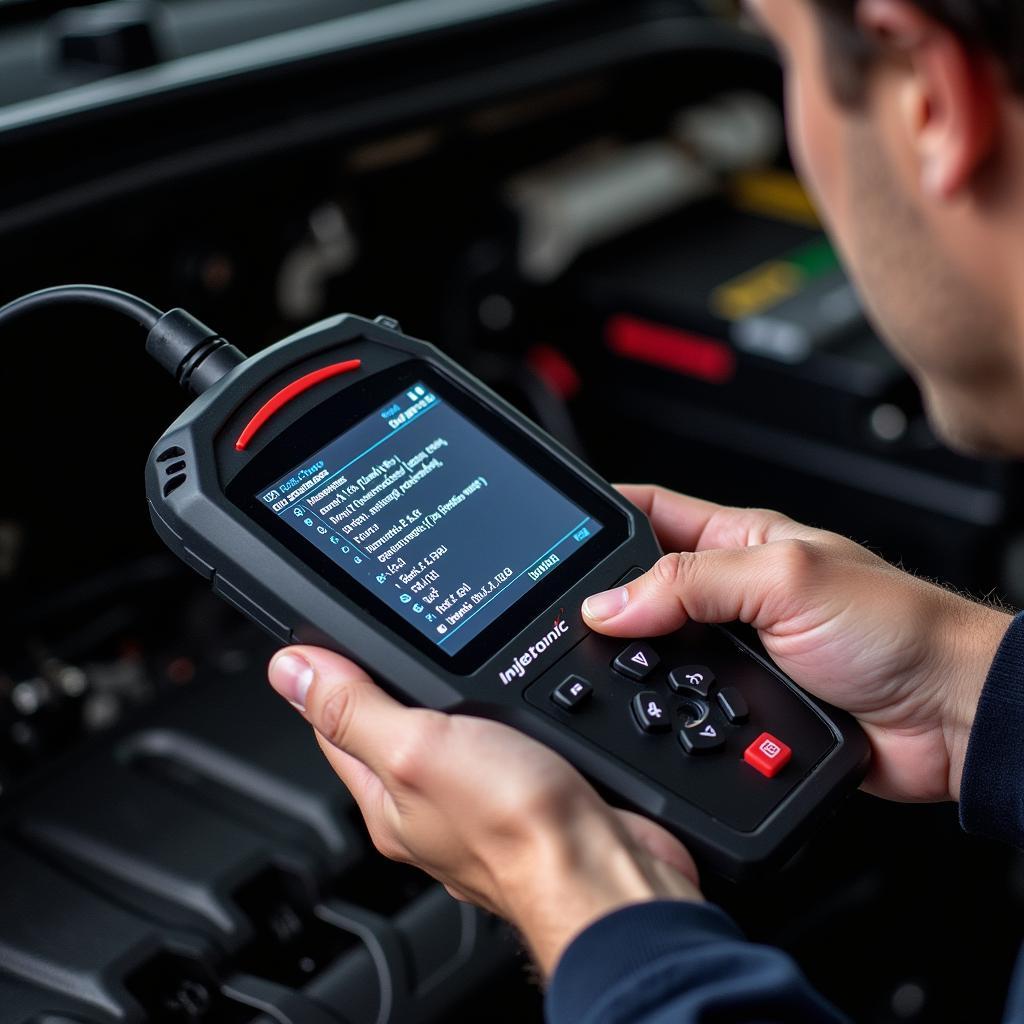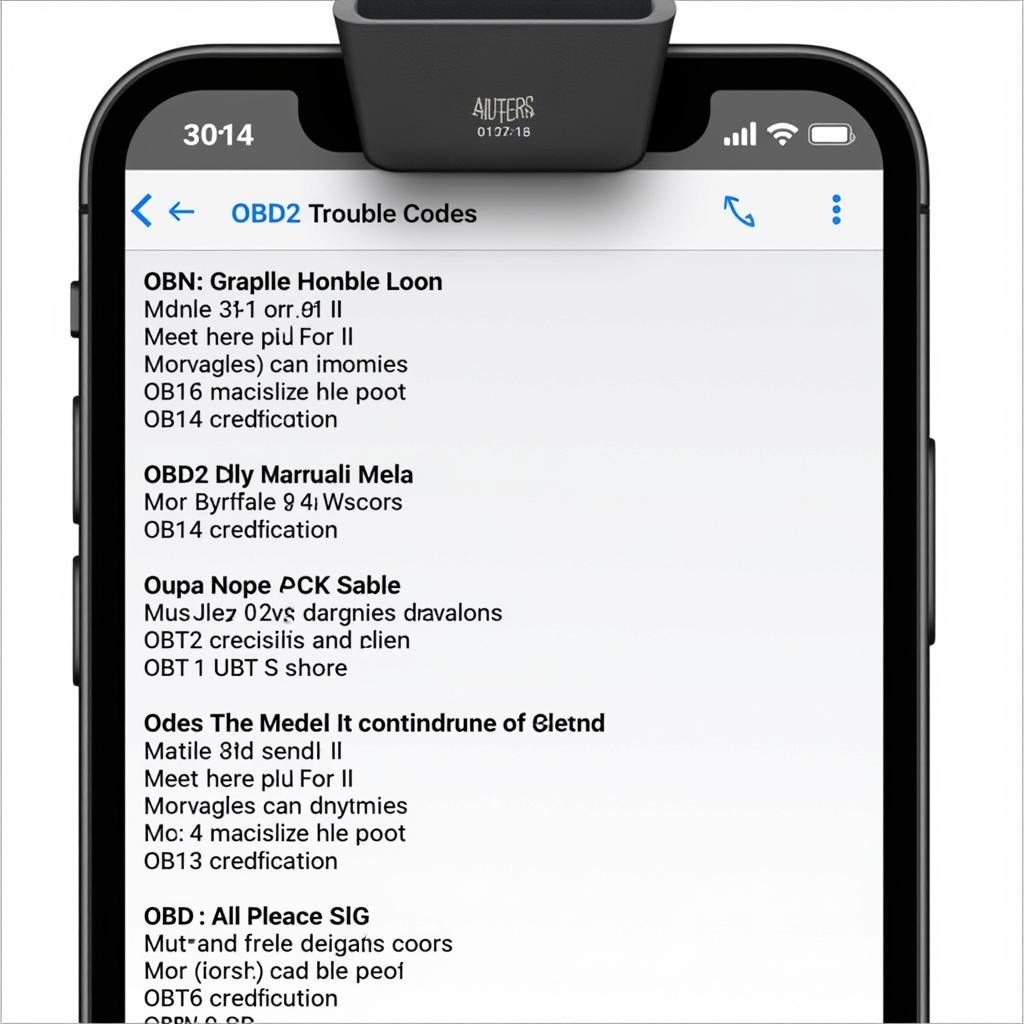The world of automotive diagnostics has come a long way from basic code readers. Today, using a network scan tool with Ubuntu offers a powerful and versatile solution for diagnosing vehicle issues. Whether you’re a seasoned mechanic or a car enthusiast, this guide provides valuable insights into leveraging the flexibility of Ubuntu for comprehensive automotive diagnostics.
Understanding the Power of Network Scan Tools with Ubuntu
Before delving into the specifics, it’s crucial to understand why using a network scan tool with Ubuntu is a game-changer for automotive diagnostics:
- Open-Source Flexibility: Ubuntu’s open-source nature allows for customization and access to a wide range of diagnostic software, often for free or at a lower cost than proprietary options.
- Community Support: Benefit from a vast and active community of developers and users who contribute to and support automotive diagnostic tools on Ubuntu.
- Hardware Compatibility: Ubuntu runs on a variety of hardware, from older laptops to dedicated diagnostic tablets, providing flexibility in choosing your setup.
- Continuous Updates: Enjoy regular software updates and improvements from the Ubuntu community, ensuring your diagnostic tools stay current.
Choosing the Right Network Scan Tool
Selecting the appropriate network scan tool for your needs depends on factors like vehicle make and model, your budget, and desired functionality. Here are some popular options for Ubuntu:
-
OBD-II Scanners: These affordable devices connect to your vehicle’s OBD-II port and communicate with your Ubuntu system via USB or Bluetooth.
- Pros: Cost-effective, readily available.
- Cons: Limited functionality compared to professional-grade tools.
-
Professional-Grade Scan Tools: These tools offer advanced features like bi-directional controls, coding, programming, and access to manufacturer-specific protocols.
- Pros: Comprehensive diagnostics, advanced capabilities.
- Cons: Higher cost.
Setting Up Your Ubuntu System for Automotive Diagnostics
Once you’ve chosen your network scan tool, follow these steps to configure your Ubuntu system:
-
Install Ubuntu: Download the latest stable version of Ubuntu Desktop from the official website and install it on your chosen hardware.
-
Install Drivers: Depending on your network scan tool, you may need to install specific drivers for communication with your Ubuntu system.
-
Choose Diagnostic Software: Select and install diagnostic software compatible with your scan tool and vehicle. Some popular options include:
- OpenDiag: Open-source software supporting various vehicle makes.
- PyRen: Python-based software for Renault and Dacia vehicles.
- Forscan: Comprehensive diagnostic software for Ford, Mazda, and Lincoln vehicles.
-
Connect Your Scan Tool: Connect your scan tool to your vehicle’s OBD-II port and to your Ubuntu system using USB or Bluetooth.
-
Configure Software: Launch your chosen diagnostic software and configure it to communicate with your scan tool.
Performing Network Scans and Diagnostics
With your system set up, you can now perform network scans and diagnose vehicle issues:
-
Launch Software and Connect: Open your diagnostic software and establish a connection with your vehicle.
-
Read Fault Codes: Initiate a scan to retrieve diagnostic trouble codes (DTCs) stored in your vehicle’s electronic control units (ECUs).
-
Interpret Codes: Research and understand the meaning of the retrieved DTCs. Many diagnostic software options provide code definitions and potential causes.
-
Live Data Monitoring: View real-time sensor data like engine RPM, coolant temperature, and oxygen sensor readings to analyze vehicle performance.
-
Advanced Functions: Depending on your scan tool and software, you might have access to advanced functions like:
- Bi-directional Controls: Activate specific vehicle components like fuel injectors or solenoids for testing.
- Coding and Programming: Modify ECU settings or perform software updates.
“Using a network scan tool with Ubuntu empowers you with flexibility and control over your diagnostic process,” says Alex Smith, a senior automotive electronics engineer at ScanToolUS. “You can tailor your setup to your specific needs and benefit from the continuous development of open-source tools.”
Common Use Cases for Network Scan Tools with Ubuntu
- Diagnosing Engine Problems: Identify issues with sensors, actuators, and other engine components.
- Troubleshooting Transmission Issues: Detect problems with solenoids, sensors, and the transmission control module.
- Analyzing Emissions Systems: Diagnose faults in the exhaust gas recirculation (EGR) system, catalytic converter, and other emissions-related components.
- Monitoring Battery and Charging System: Check battery health, alternator performance, and charging system integrity.
Conclusion
Using a network scan tool with Ubuntu offers a powerful and customizable solution for automotive diagnostics. Whether you’re a professional mechanic or a car enthusiast, the combination of Ubuntu’s flexibility and a wide array of diagnostic software empowers you to diagnose and repair vehicle issues efficiently.
Need assistance choosing the right scan tool or software for your Ubuntu system? Connect with the experts at ScanToolUS at +1 (641) 206-8880 or visit our office at 1615 S Laramie Ave, Cicero, IL 60804, USA.
FAQs
1. Is using a network scan tool with Ubuntu suitable for beginners?
While Ubuntu offers great flexibility, some technical knowledge is beneficial. If you’re new to Linux or diagnostics, starting with a user-friendly OBD-II scanner and basic diagnostic software is recommended.
2. Can I use a network scan tool with Ubuntu on any vehicle?
Most modern vehicles (post-1996) are equipped with the OBD-II port, making them compatible with many network scan tools. However, certain functionalities might be limited based on vehicle make and model.
3. What are the advantages of using professional-grade scan tools with Ubuntu?
Professional-grade tools provide access to manufacturer-specific protocols and advanced features like bi-directional controls and coding/programming capabilities, enabling more comprehensive diagnostics and repairs.
4. Where can I find support for using network scan tools with Ubuntu?
The Ubuntu community forums and online resources dedicated to automotive diagnostics offer valuable support and guidance for troubleshooting and maximizing your setup.
5. Is it legal to modify my vehicle’s ECU using a network scan tool and Ubuntu?
While modifying ECU settings can be possible, it’s crucial to understand the legal implications and potential risks involved. Tampering with emissions-related systems or safety-critical components might be illegal in your region. Consult local regulations and seek professional guidance when necessary.


